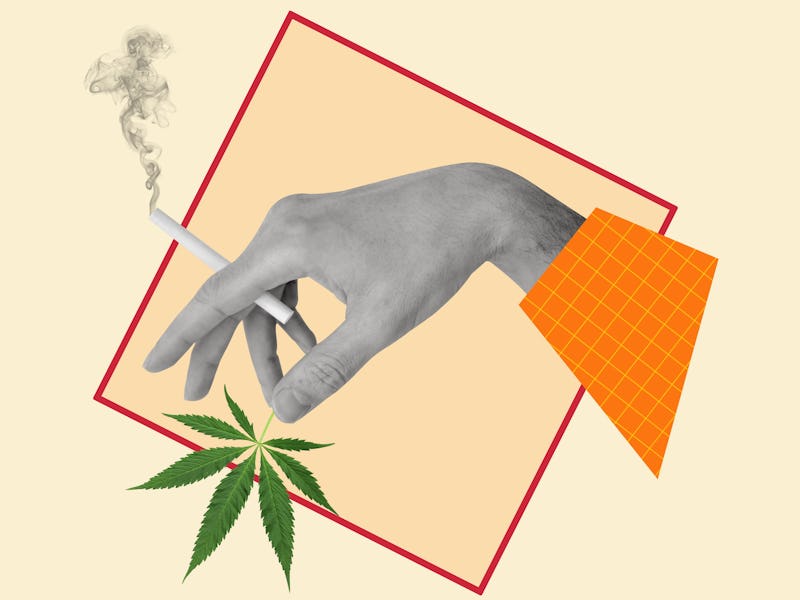Can You Really Build Up A Tolerance to Weed? Yes, And It Could Be A Good Thing
It's possible to build up a tolerance to marijuana, but cannabis tolerance isn't always a bad thing in a medicinal context.

If you consume any substance enough, you’ll notice the jolt wears off after a while. It takes more caffeine to become alert, more alcohol to get buzzed. But is the same true for cannabis?
As with other substances, you can build up a tolerance to weed. But that’s not always a bad thing, though it’s worth knowing when to wean off.
Weed contains the psychoactive compound tetrahydrocannabinol (THC) which can bring feelings of relaxation and euphoria for some, and anxiety and paranoia for others. THC binds to and activates cannabinoid type 1 (CB1) receptors in the brain, which are typically reserved for cannabinoids that we make ourselves. However, when a compound like THC is introduced to the brain, it can overwhelm these CB1 receptors.
In an attempt to bring the brain back to balance, the neurons that contain the CB1 receptors reduce the number of those receptors they contain in a process called down-regulation.
“It’s an adaptation of the brain,” Ryan Vandrey, a professor of psychiatry and behavioral science at Johns Hopkins University, tells Inverse. If there are fewer receptors, then there are fewer opportunities for THC to overwhelm the neurons.
Though many people who smoke recreationally see building a tolerance as a bad thing, that’s not always the case, says Vandrey. “It can be a good thing in the context of therapeutic use,” he says. THC can have some adverse effects like anxiety, impairment of thinking, dizziness, and nausea. But building up a tolerance to a specific dose of THC means “the likelihood of experiencing those side effects goes down.” The medicinal effect, however, remains. For those using THC in a medicinal context, like for chemotherapy or multiple sclerosis, building up a tolerance to a certain dose can mean a better overall experience, one free of negative side effects.
While Vandrey says that everyone reacts to weed differently, tolerance depends on dose and frequency: The more often you use it, the more likely you are to build a tolerance. “Daily or near daily use will usually come with some amount of tolerance development,” he says.
Research corroborates how pot’s effects become less potent over time. A 2018 review published in Neuroscience & Biobehavioral Reviews says that the short-term effects of getting high are “less prominent in regular cannabis users compared to non-regular users.”
Building up a tolerance to weed isn’t risk free. Vandrey says that the endocannabinoid system “modulates multiple physiological systems in our bodies” and acts as a sort of homeostasis regulator, keeping those various systems in balance. When we build up a tolerance to weed, our body gets used to incorporating that substance across these physiological systems while maintaining homeostasis. If someone takes large enough doses for a long enough period of time, then not consuming it can lead to withdrawal.
Withdrawal, Vandrey says, can look different in everyone. Symptoms may manifest as irritability, anxiety, insomnia, depression, headaches, and vomiting. Unlike withdrawal from alcohol or opiates, withdrawal from weed can’t be fatal. “There's no real health risk for withdrawal but it's not comfortable,” Vandrey says.
Still, that’s no reason to approach the limit of tolerability. If someone is seeking to wean themselves off their typical cannabis dose, Vandrey recommends using a lower dose and smoking less often. But don’t think that just because you’re smoking a low dose that you’re safe from building up a tolerance.
“Low and high is pretty relative from one person to the next,” Vandrey says. In general, a lower dose does decrease the likelihood of neurobiological change, but that could only mean manifestation of withdrawal is less severe, rather than entirely absent.
So if you’re smoking recreationally, be mindful of how much you escalate your dose every so often. If you want to keep your tolerance in check, cut back every once in a while.